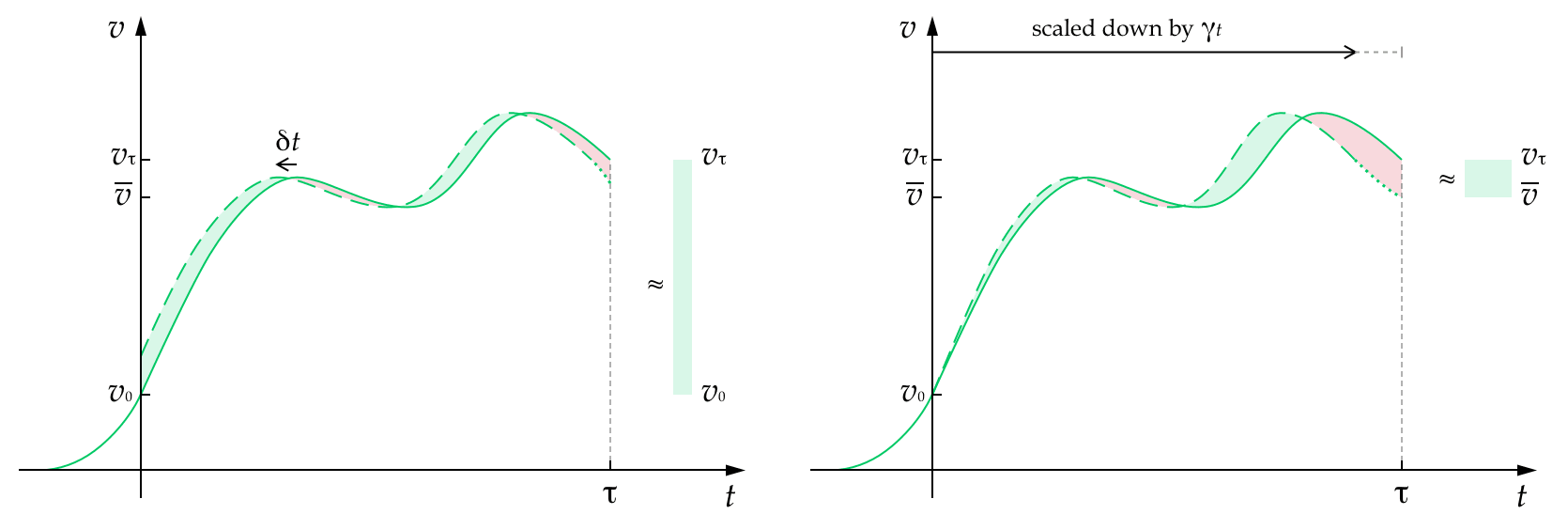Since writing The Precipice, one of my aims has been to better understand how reducing existential risk compares with other ways of influencing the longterm future. Helping avert a catastrophe can have profound value due to the way that the short-run effects of our actions can have a systematic influence on the long-run future. But it isn't the only way that could happen.
For example, if we advanced human progress by a year, perhaps we should expect to see us reach each subsequent milestone a year earlier. And if things are generally becoming better over time, then this may make all years across the whole future better on average.
I've developed a clean mathematical framework in which possibilities like this can be made precise, the assumptions behind them can be clearly stated, and their value can be compared.
The starting point is the longterm trajectory of humanity, understood as how the instantaneous value of humanity unfolds over time. In this framework, the value of our future is equal to the area under this curve and the value of altering our trajectory is equal to the area between the original curve and the altered curve.

This allows us to compare the value of reducing existential risk to other ways our actions might improve the longterm future, such as improving the values that guide humanity, or advancing progress.
Ultimately, I draw out and name 4 idealised ways our short-term actions could change the longterm trajectory:
- advancements
- speed-ups
- gains
- enhancements
And I show how these compare to each other, and to reducing existential risk.

My hope is that this framework, and this categorisation of some of the key ways we might hope to shape the longterm future, can improve our thinking about longtermism.
Some upshots of the work:
- Some ways of altering our trajectory only scale with humanity's duration or its average value — but not both. There is a serious advantage to those that scale with both: speed-ups, enhancements, and reducing existential risk.
- When people talk about 'speed-ups', they are often conflating two different concepts. I disentangle these into advancements and speed-ups, showing that we mainly have advancements in mind, but that true speed-ups may yet be possible.
- The value of advancements and speed-ups depends crucially on whether they also bring forward the end of humanity. When they do, they have negative value.
- It is hard for pure advancements to compete with reducing existential risk as their value turns out not to scale with the duration of humanity's future. Advancements are competitive in outcomes where value increases exponentially up until the end time, but this isn't likely over the very long run. Work on creating longterm value via advancing progress is most likely to compete with reducing risk if the focus is on increasing the relative progress of some areas over others, in order to make a more radical change to the trajectory.
The work is appearing as a chapter for the forthcoming book, Essays on Longtermism, but as of today, you can also read it online here.

Gains
“While the idea of a gain is simple — a permanent improvement in instantaneous value of a fixed size — it is not so clear how common they are.”
I agree that gains aren’t where the action is, when it comes to longterm impact. Nonetheless, here are some potential examples:
These plausibly have two sources of longterm value. The first is that future agents might have slightly better lives as a result: perhaps one in a billion future people are willing to pay the equivalent of $1 in order to be able to see a real-life panda, or to learn about the life and times of a historically interesting figure. This scales in future population size, so is probably an “enhancement” rather than a “gain” (though it depends a little on one’s population ethics).
The second is if these things have intrinsic value. If so, then perhaps they provide a fixed amount over value at any time. That really would be a gain.
Another possible gain is preventing future wars that destroy resources. Suppose that, for example, there’s a war between two factions of future interstellar civilisation, and a solar system is destroyed as a result. That would be a loss.
As you say, there is an issue that some of these things might really be enhancements because they aren't of a fixed size. This is especially true for those that have instrumental effects on the wellbeing of individuals, as if those effects increase with total population or with the wellbeing level of those individuals, then they can be enhancements. So cases where there is a clearly fixed effect per person and a clearly fixed number of people who benefit would be good candidates.
As are cases where the thing is of intrinsic non-welfarist value. Though there... (read more)